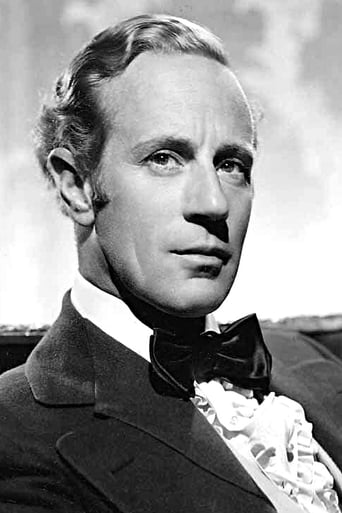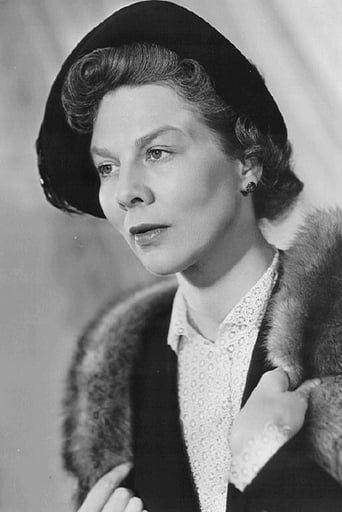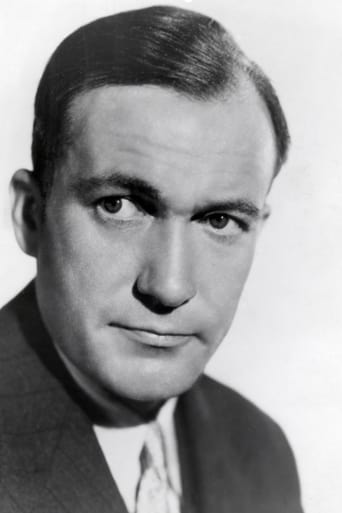Vashirdfel
Simply A Masterpiece
XoWizIama
Excellent adaptation.
Beystiman
It's fun, it's light, [but] it has a hard time when its tries to get heavy.
Afouotos
Although it has its amusing moments, in eneral the plot does not convince.
SimonJack
George Bernard Shaw won an Oscar for his screenplay of "Pygmalion," which he further adapted from his own stage play that had been a huge success. The later musical hit of 1964, "My Fair Lady," was fashioned from this highly successful and popular film production. Other movies have been attempted, but all fall short of this original. Nor can any other musical attempt top the original musical rendition. This film won the Oscar for best screenplay and was nominated for the top three awards – best picture, actor and actress. "Pygmalion" and its stars were up against huge competition that year. I think Leslie Howard's Professor Henry Higgins was as good as Spencer Tracy's Fr. Flanagan in "Boys Town." And, Wendy Hiller's Eliza Doolittle was as good or better than Bette Davis's "Jezebel." The supporting cast of "Pygmalion" were all very good. Most notable were Wilfrid Lawson as Alfred Doolittle, Marie Lohr as Mrs. Higgins, and Scott Sunderland as Col. Pickering. This is a wonderful movie that all should enjoy. It's a good companion to the more popular 1964 musical. But before or after watching that film, watch this original movie version of Shaw's play as well. It is the prototype for all renditions put on film. One would be hard pressed to find better acting for this story anywhere.
kijii
After having been required to read this play in high school and then being re-exposed to it in My Fair Lady, this authentic movie version was a total breath of fresh air. First and very important, is the fact that Criterion has beautifully restored this black and white movie. In fact, one wonders if it was ever seen in theaters with such clean, pristine images and sounds (the latter of which is very important to the story itself). The opening credits say "Introducing Wendy Hiller." I remember thinking, if this is her film debut, how could she have thought that she would ever equal it!! Nevertheless, she did come back in another great Bernard Shaw movie in 1941, Major Barbara (which also cries out to be equally restored by Criterion). I especially appreciate these two movie versions of Shaw's plays due to their closeness and authenticity to Shaw, himself. In both, Shaw wrote the scenario and dialogue; both were produced by Gabriel Pascal (who went on to produce and or direct other Shaw play-based movies) and directed by Anthony Asquith (who went on to direct other Shaw play-based movies). This 1938 movie is the "gold standard" of the play! I've never seen a better Henry Higgins than Leslie Howard (who also co-directed the movie). He was born for this part and it is hard to imagine that Rex Harrison didn't use him as his model in My Fair Lady. Likewise, Wendy Hiller—unlike Audrey Hepburn--was totally believable as Eliza Dolittle. Also look for Jean Cadell to shine in the small role of Mrs. Pearce, Higgins' housekeeper.
wes-connors
Linguistically appropriate and bad-mannered Leslie Howard (as Henry Higgins) bets he can teach cockney guttersnipe Wendy Hiller (as Eliza Doolittle) how to speak in high society, and then pass her off to the Buckingham Palace crowd as a Duchess. This production of George Bernard Shaw's classic story doesn't have the great Lerner / Loewe songs made familiar in the musical ("My Fair Lady") version, but it's a much better production, overall. Mr. Shaw receives official credit; he shared an "Academy Award" win with three screenplay adapters. Whatever the distribution of work, Shaw's sharp and brilliant satire on British dialects shines prominently. Everyone performs marvelously. The accent is on excellence.********** Pygmalion (8/38) Anthony Asquith, Leslie Howard ~ Leslie Howard, Wendy Hiller, Wilfrid Lawson, Scott Sunderland
James Hitchcock
George Bernard Shaw's play "Pygmalion" was written in support of his controversial thesis that class divisions in British society could be overcome by encouraging the use of Received Pronunciation (supported by reformed spelling in a phonetic alphabet) in place of regional and class accents. Today such an idea would doubtless be attacked as snobbish and reactionary, but in 1912 Shaw clearly intended it to be enlightened and progressive. The story concerns Henry Higgins, an upper-class professor of phonology, who accepts a bet that he can teach a Cockney flower-seller to speak like a duchess and pass her off as one at an Embassy reception. The title was taken from a Greek myth about a sculptor who creates a beautiful statue which the gods transform into a real woman; the implication is that Higgins is the sculptor and Eliza his "creation". (I remember misunderstanding the title when I was taken to a performance as a child and found myself wondering why, in a play called "Pig Malion", pigs were never mentioned once).This film, dating from 1938, was the first cinema adaptation of the play. Although it was a financial and critical success in its day, its fame has today largely been overshadowed by that of the 1964 musical version "My Fair Lady". The screenplay was adapted by Shaw himself from his play, although the ending was changed against his wishes, with Eliza returning to Higgins' home in such a manner as to suggest a romantic attachment between them. The original play ended with Eliza marrying her admirer Freddie Eynsford-Hill, a wealthy but vapid and foolish young man, and Shaw strongly resisted any attempts by actors or theatrical producers to change this ending. In "My Fair Lady" it seems at first as if the audience are being prepared for Shaw's original ending; Freddie is made more attractive, both in looks and in personality, and he gets to sing one of the film's big romantic numbers, "On the Street Where You Live". That film, however, also ends with Eliza returning to Higgins.There was a reason why Shaw resisted attempts to turn "Pygmalion" into a romantic comedy. (He seems to have deliberately ignored the fact that in the original myth Pygmalion fell in love with and married his creation Galatea). Besides social class, the play also deals with the theme of feminism, with Eliza seen as a strong, determined "new woman" who learns to stand up for herself after being bullied first by her drunken, womanising old reprobate of a father and then by Higgins, a crashing snob and misogynist. (He regards Eliza as a "guttersnipe" and has no qualms about calling her one to her face). The attraction of Freddie for her is precisely that he is a weak character and therefore unlikely to bully her.This film updates the action from the 1910s to the 1930s (although some of the costumes look a bit old-fashioned for the latter period) and makes a few other changes to the plot of the play, some of which were retained in "My Fair Lady", such as the invention of the Hungarian Professor Karpathy. Shaw, however, kept his controversial line "Not bloody likely!", making Wendy Hiller the first person to utter that particular profanity in a in a British film; rather surprisingly the censors appear to have raised no objection. One thing the makers of this film got right, unlike the American makers of "My Fair Lady, is the pronunciation of the name "Eynsford", originally a Kentish village. (It's "Ainsford", not "Inesford").Hiller was reputedly Shaw's favourite actress and was certainly something of a specialist in Shavian drama at a time when performances of his works on the London stage were more frequent than they are today; her next film, "Major Barbara", was also a Shaw adaptation. It is therefore unsurprising that she makes a fine Eliza, perhaps closer to Shaw's original conception than Audrey Hepburn who always seems more convincing as the society lady of the later scenes than as the Cockney of the earlier ones. Leslie Howard is certainly a better Higgins than Rex Harrison, who was too old and too laid-back; I have never understood why he won the "Best Actor" Oscar, especially as his singing voice was not really up to taking the male lead in a musical.In his lifetime, Shaw was held in very high esteem as one of the greatest British dramatists of all time, at times regarded almost as a twentieth-century Shakespeare. Since his death his reputation has declined somewhat, although a number of his plays, "Pygmalion" among them, still hold a popular place in the repertoire. He was able to create witty dialogue and interesting characters, even when he was writing a didactic piece, which most of his plays are, and this is particularly true of "Pygmalion". Antony Asquith's film is a worthy adaptation of this distinguished play for the cinema. 8/10





